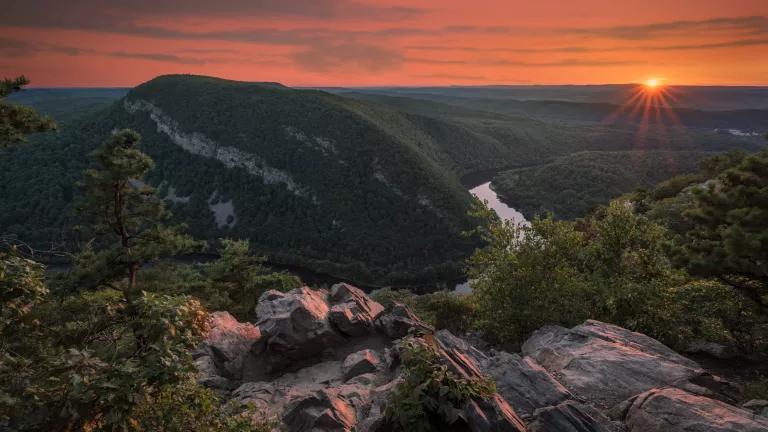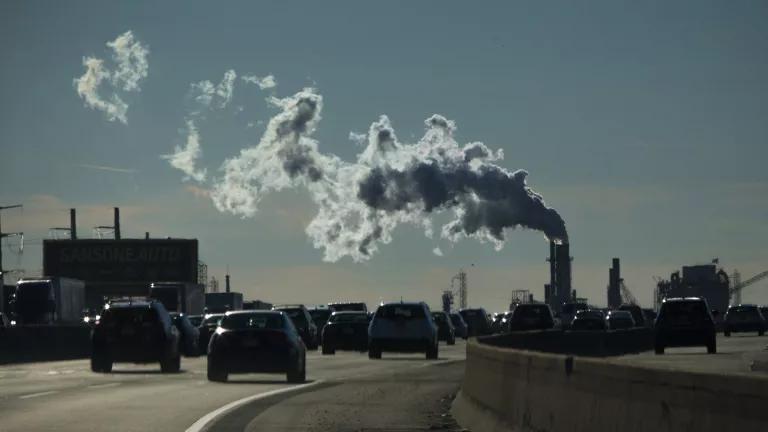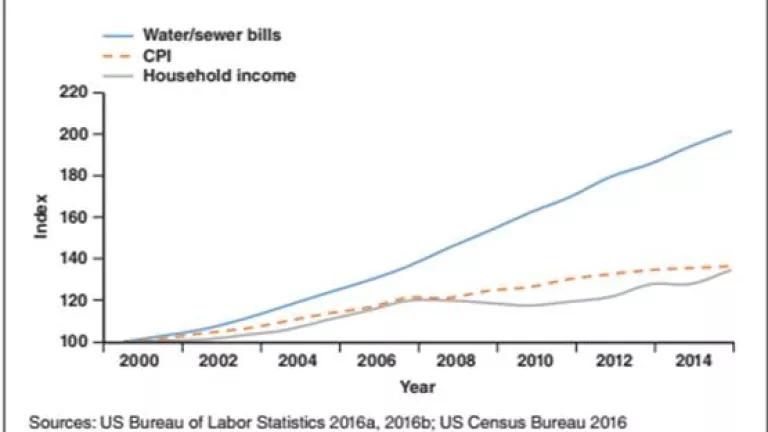NRDC & CMK File Brief to Block Fracking in Delaware Basin

The Natural Resources Defense Council, on behalf of itself and Catskill Mountainkeeper, filed an amicus brief today in support of the Delaware River Basin Commission (DRBC) and the Delaware Riverkeeper Network, who are defending the Commission’s ability to regulate hydraulic fracturing (or “fracking”) in the Delaware River watershed. A copy of our brief is here.
Fracking is a destructive method of extracting oil and gas from the ground that pollutes the air, contaminates nearby ground and surface waters, contributes to the climate crisis, and makes residents sick. Fracking has no place in the Delaware River Basin, which was recently recognized as American Rivers' 2020 River of the Year, and serves as an important habitat for several endangered species, a drinking water source for over 16 million people, as well as a refuge for anglers, bird watchers, boaters, and swimmers.
Thanks in part to the advocacy of NRDC and its allies, since 2011 the Basin has been protected by a de facto watershed-wide fracking ban, but that ban is at risk of being reversed, putting the entire region at risk.
Wayne Land and Mineral Group, a group of landowners in Wayne County, Pennsylvania, want to frack in the River Basin. They have sued the DRBC, claiming it lacks authority to regulate this dangerous industrial activity.
We disagree.
The Delaware River Basin Commission was established to regulate water supply, water quality, flood mitigation, and water management in the watershed. Under the terms of the Delaware River Basin Commission Compact, the Commission can, among other things, regulate any project with a substantial effect on the water resources of the River Basin. The Compact defines a “project” as any activity for the “utilization, control,” or “management” of water resources.
Our brief explains that water is a central component of fracking, and that the utilization, control, and management of water resources is a necessary part of this process.
In our brief, we make two central points:
First, water is a necessary and primary component in fracking. Water is the primary component in fracking fluid, making up over 98 percent of the toxic fluid cocktail that is injected underground during the fracking process. Fracking permanently removes up to 90 percent of the water used from the water cycle. If permitted, fracking would permanently remove nearly 18 billion gallons of water from the Basin over the next 20 years.
Arguing that water use is not at the center of fracking is like claiming that water is not at the center of operating dams. There is simply no fracking without substantial water use.
Second, fracking in the River Basin would contaminate local ground and surface water, killing local aquatic wildlife and making residents sick. Fracking results in the formation of millions of gallons of hazardous contaminated fluid and wastewater that can leak into the River Basin, jeopardizing the health of nearby communities and the environment. Fracking fluid and wastewater contain thousands of chemicals, many of which are toxic. Any leak or spill of fracking wastewater can be fatal to humans and other species, including fish.
Indeed, fracking is driving a public health crisis across the United States. Studies have found that those who live closer to fracking wells are at greater risk of experiencing serious health problems. If fracking were to be permitted in the Delaware River Basin, roughly 45,000 people would find themselves living within one mile of the planned well pad locations and exposed to associated health risks.
The Delaware River Basin Commission was formed with the explicit purpose of safeguarding the waters of Delaware River Basin, along with protecting the health of the 7.3 million residents who live there. It follows that it has both the authority and the responsibility to prohibit fracking in the Basin.



